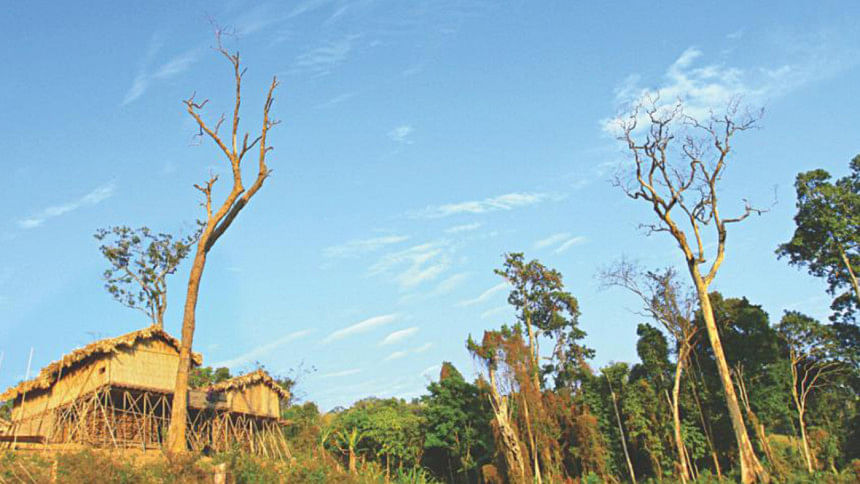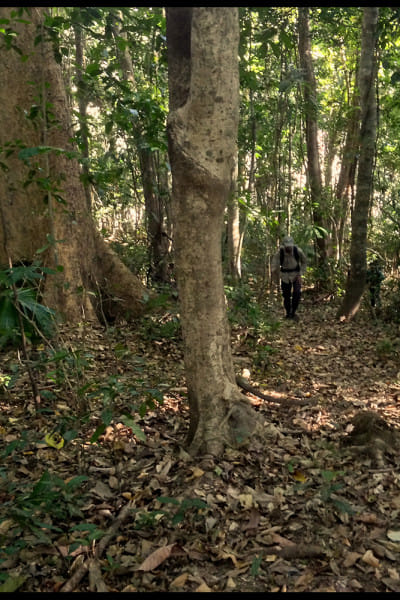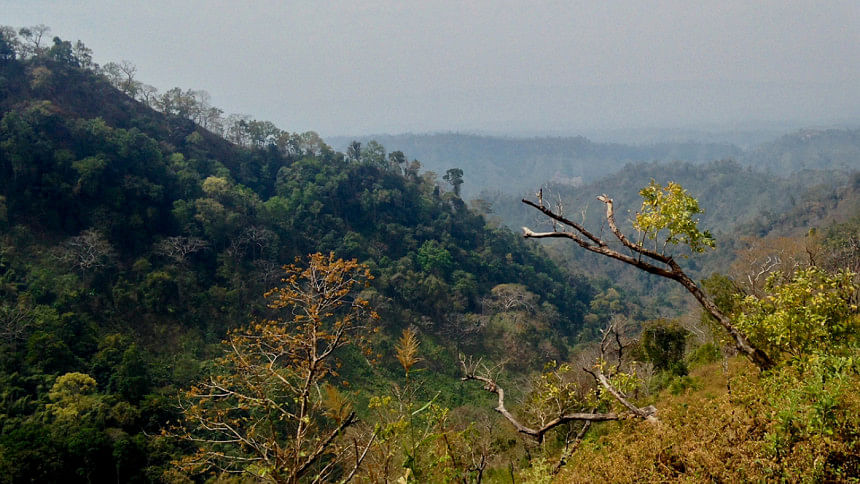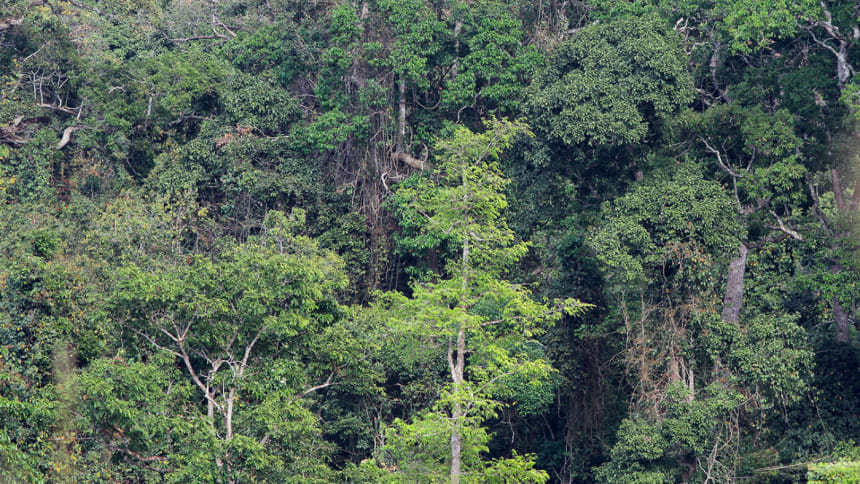Nature Quest: A tale of tall trees and good men

Have you ever been to our hills, deep enough to know its real inhabitants? I suspect very few of us have been beyond the boundaries of the hill-towns. Most of us have little idea about life in the deep woods. If you walk past the town limits and walk a little more uphill, you will see natural old-growth forests where the trees are so wide that five men could hug a single trunk without touching each other; where trees are so tall that looking up to their canopies will induce dizziness in you; where the climbers are so long that one can swing from one tree to another and where the treetops are so close that night descends in the afternoon! This serenity and the sense of escape always attracted me towards this remoteness.
My quest for the last couple of years has been to explore the last natural forests of the Chittagong Hill Tracts in order to learn more about its human and non-human inhabitants. I was fortunate to be able to make several expeditions into the heart of Bandarban, into a remote area called the Sangu-Matamuhuri Reserve Forest and its surroundings. Here, travelling with naturalist friends, I discovered many fascinating stories these remote hills carry and more than that I gained insight into the lives of the hill men, the people who call this wondrous place home.
In one of those visits, we walked through miles of forest patches, on hilltops where the canopies of the trees closed over our heads. There were no roads, no people, nothing to infringe on the peace, where leaf-filtered yellow-green sunlight touched my bare skin. The chattering of hill birds soothed my mind; infrequent tender breezes washed my face through the gaps in the wall of vegetation. I focused on the elements around me and void of all digital complexities, the intensity of my surroundings heightened even more.

In the murmurs of joy from the giant trees and the curious wind,
Where rain ran in rivulets down the hills, through the obsolete roots,
Here, in the bamboo huts, built with great affection,
The good men, the hill farmers dwell."
Entirety is a part of our hills. There, all things are isolated yet connected. The vastness of the land is always absorbing, whether you see one hill or one tree or one farmer. I looked upon that landscape every morning, with the sun on my back, - losing the sense of being a dominating human, only submitting myself to nature. My imagination came to life, and that, I thought, is where creation began and yet remains unclaimed by our will.
We looked for wildlife all day, especially seeking hill birds that were not seen anywhere else in Bangladesh. At night we stayed in the bamboo-huts of our Mro friends, different nights in different villages. More days were spent in these villages surrounded by thick forests, located in the highest elevations of Bangladesh.
One of those villages was on top of a hill, surrounded by several streams and slopes. Only a few families lived in this Mro village, where my friend Mongkheo had his own little bamboo hut. Often I would observe him from distance and sometimes it felt like his mystic eyes fed on the vastness of the hills, his narrow and angular face drank the last drop of monsoon and his strong-built body carried all signs of goodness.
Almost everything in his house was made of bamboo: the thatch, the frame of the roof, the poles, the floor and even the pillows! The Mros live very simply, and are possibly the lowest users of resources in our country – they have no electricity, no bricks or concrete, and no means of transport but their own legs.

During the day I often sat on an oval-shaped stone along the stream and watched the water meandering by working its force on the stones, changing them, morphing the landscape over a thousand years. Sun beams filtered through the overhanging branches of trees and soil-tipped roots of old trees on the slope above me, making the shallow parts of the stream seem like pools of boiling water embedded with gravel. A curious Streaked Spiderhunter came by a few times to greet me. My friend Mongkheo would also sit with me. He would help me spot the wildlife in the valley below us as we shared stories of love, joy and sorrow.
It is fascinating to know people like Mongkheo, his family and other villagers who live so close to us, yet are so different from us. He is so easy to understand, yet so difficult to relate to. Everyday in his forest village I learned something new from him, not only about the hills but also about life. I have travelled all over Bangladesh for the last ten years chasing rare birds and the rare beauty of our land. I have met people from all different walks of life, but never have I met anyone as welcoming and warm as my friends in the hills. They gave more than I asked for – food, shelter, security and comfort – and most importantly their trust, without ever expecting anything in return.

To truly feel the freedom that we claim to have in this country, perhaps it is about time we reconnected with nature and people living close to nature. Our poets did not speak about birds or nature or jotsna raat living in cities and we would genuinely agree that their words reflected true love for this country. If we remain disconnected from nature and let our children live in concrete insanity, how can we expect them to love the country and its people? How can we expect them to lead us differently than our current politicians? Did we ever think about it?
The writer is a Bangladesh-based Conservation Biologist, currently studying at the University of Cambridge, UK.

 For all latest news, follow The Daily Star's Google News channel.
For all latest news, follow The Daily Star's Google News channel. 



Comments